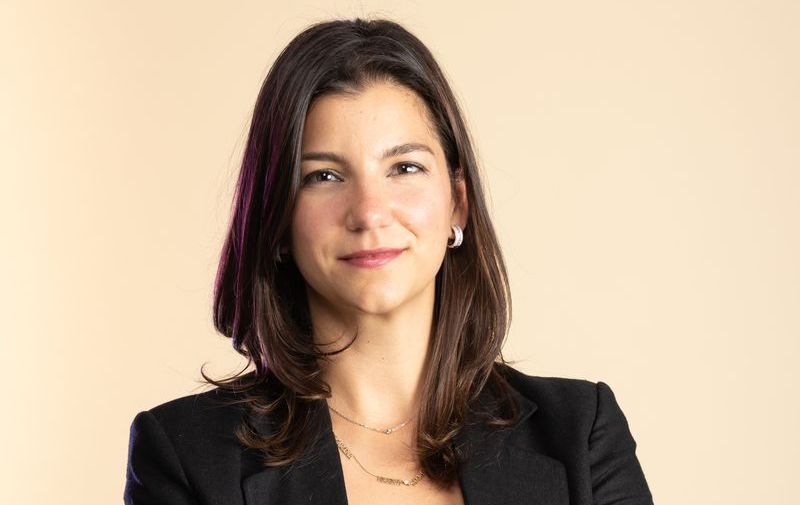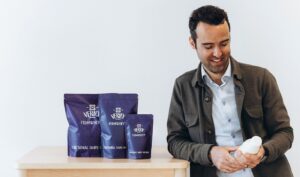[Disclosure: AgFunderNews’ parent company AgFunder is an investor in Brightseed.]
Brightseed, a startup harnessing AI and machine learning to illuminate the “dark matter” of nutrition lying untapped in plant and fungal kingdoms, has teamed up with consumer health giant Haleon to advance the discovery of plant-based small molecules with potential health benefits.
With a portfolio spanning oral health, pain relief, respiratory health, digestive health, and vitamins, minerals & supplements, Haleon’s brands include Advil, Panadol, Theraflu, and Centrum.
Details of the collaboration are being kept under wraps, but under the deal, Brightseed will work with Haleon to make its flagship Forager AI platform directly accessible to Haleon’s team.
This is a new departure for the company, cofounder, president and CCO Sofia Elizondo told AgFunderNews.
“In the past, our partners have worked with us to design our R&D, where we do a lot of the work in leveraging Forager and then provide them with the guidance and the output of that. With Haleon, we are basically offering Forager-on-demand so that Haleon’s team can access the insights of the platform directly on the programs that relate to our work together.”
To do this, Brightseed is working to make the user interface more accessible to third parties with generative AI tools enabling partners to interact with it using natural language prompts, which “make it much more intuitive to interact with,” she explained.
By opening up its platform in this way, Brightseed can also ensure that it doesn’t become a bottleneck and limit its own growth, she added. “It’s all about scale. There are some areas where we engage in a very hands-on way with our with our partners, but that will no longer be the only way to work with our platform.”
As for the business model, she said, “Increasingly, access to Forager is essentially paid for upfront, and some of our customers are asking to pay on a subscription basis because they want to query it over and over again.”
AI-powered discovery
Launched by Sofia Elizondo, Dr Lee Chae, and Dr Jim Flatt in 2017, Brightseed has built a vast database of plant-based compounds associated with biological targets. Its Forager platform then predicts how previously untapped plant components might confer specific health benefits and helps identify the optimal way to source or produce them at commercial scale.
This might mean extracting them from a plant source or by understanding the metabolic pathways that plants use to produce these products and then using those pathways as a blueprint for producing that compound via precision fermentation, for example.
Once Forager has identified fruitful targets, more traditional analytical methods and clinical testing can then be used to validate its computational work.
To maximize its potential, Brightseed is developing its own bioactives and working with a wide range of partners from global players such as Haleon, Ocean Spray and Danone, to undisclosed ingredients and CPG companies.
Brightseed’s first in-house product—a bioactive fiber sourced from upcycled hemp hulls—is already on the market. The fiber contains two key bioactives: N-trans-caffeoyl tyramine (NCT) and N-trans-feruloyl tyramine (NFT), which research suggests can maintain gut barrier integrity, clear fat from the liver, and support weight management, among other things.
Its second product will be a purified version of NCT and NFT that Brightseed will produce via microbial fermentation, enabling it to be used in a wider range of applications from capsules and tablets to ready-to-make drinks, said Elizondo.
“We’ve just got positive clinical data back on this, and we are getting ready to launch product applications on the back of this that we are really excited about.”
‘It’s sometimes about knowing what kind of gold you’re sitting on’
Some of Brightseed’s partners are looking to discover and commercialize new bioactives, while others are looking to learn more about the composition and health benefits of products that may already be in their portfolios, explained Elizondo.
“For example, with global ingredient companies or consumer goods companies, Forager has been able to give them much greater insight into the metabolomic profile of their products or samples. This means that some of our customers have been able to go to market and say, ‘Hey, my product contains this bioactive’ that they didn’t know was there before.
“It’s sometimes about knowing what kind of gold you’re sitting on and then capturing that value.”
Other partners have been able to “skip pre-clinical [validation work] and go directly to clinical validation, ” she said. “Brightseed was able to profile for them and say these are the kinds of bioactives in your samples and these are the health areas they’re associated with. Armed with this information, they can make more informed decisions that de-risk their path to market.”
As one use case, she said, “Say you have a biological target that you want to modulate. You can ask Forager, ‘What are the plant sources that are likely to have this desired effect?’ Forager can then rank those bioactives for you. Some may already be commercially available, but some will be totally new and not be in literature as they are AI predictions based on the algorithmic patterns that Forager picks up on.
“And then you’ll say, I’m really interested in these bioactives. Where can I find them? How can I source them? We have amassed thousands of plants over the years and so we may be able to provide supplier data for them. And if it’s not viable to use a plant source, Forager can help design the [metabolic] pathway so you can program a microbe to produce that bioactive via microbial fermentation.””
In one case, one of Brightseed’s partners wanted to prioritize a specific biological target in a broad health area, “but there were over a dozen ways to deliver that benefit biologically,” she said.
“So they worked with us and we were able to prioritize with a high level of confidence, which bioactives among the options they were looking at were most likely to modulate that target.”





